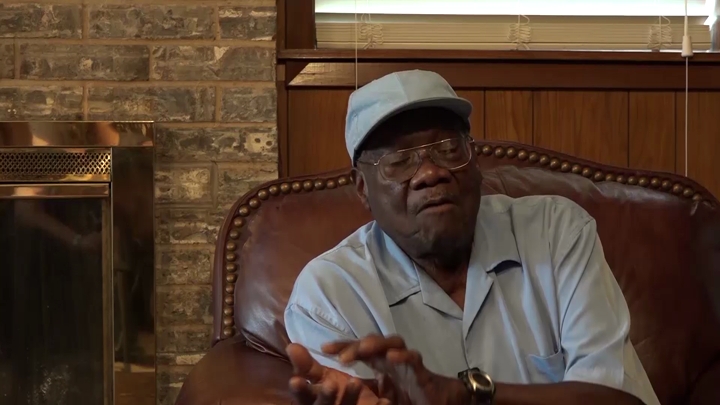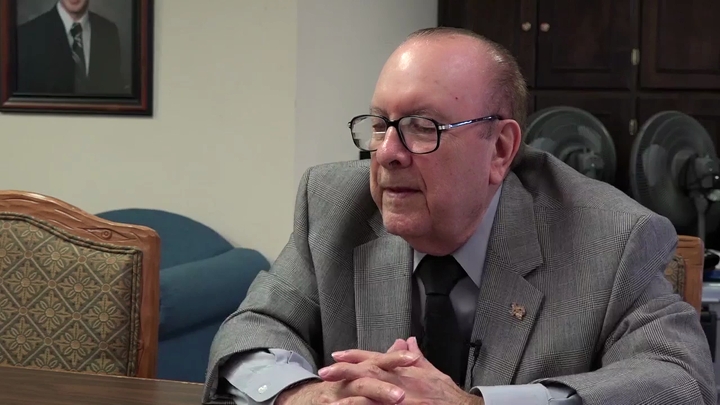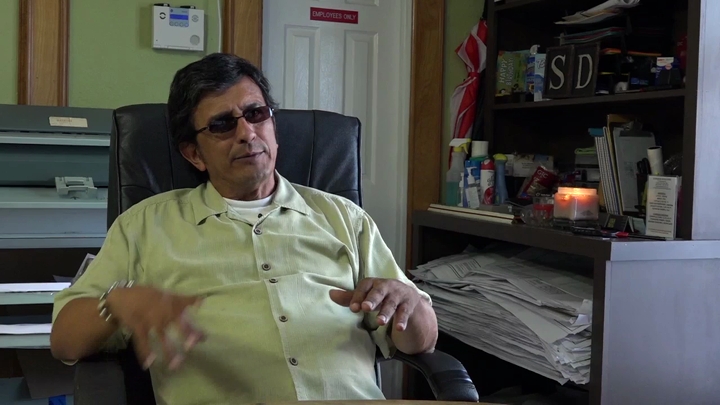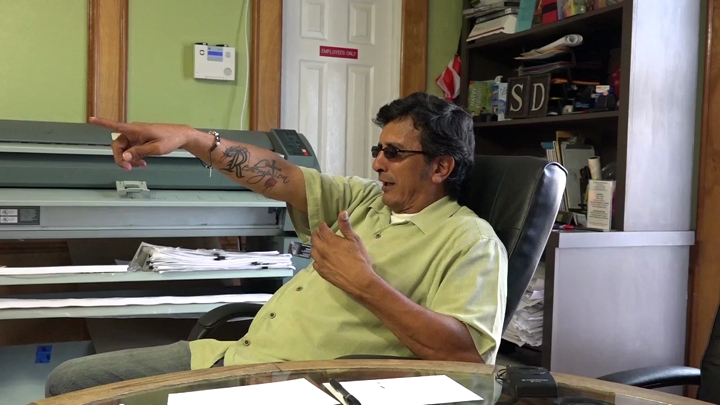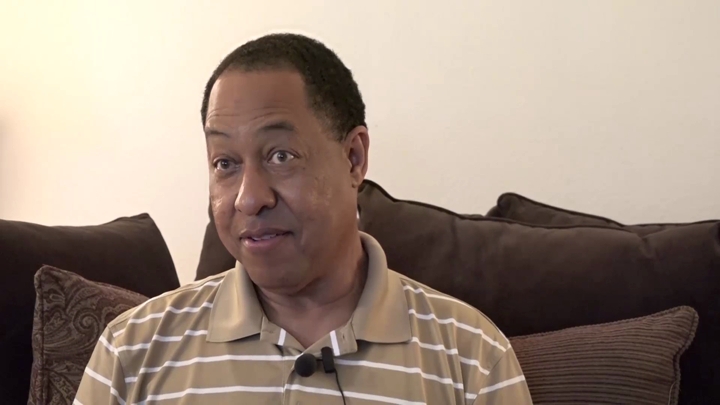Payne / Incarceration Rates and Court Cases
sign up or sign in to add/edit transcript
Interviewer: So, my last question, just to wrap up. Earlier you gave this really great explanation of generational differences and what different generations have done to change things and put us in positions, you know, different positions that we’re able to get into today. I want to know about some of your mentors, some people who inspired you. Maybe teachers or Congressman Layman or just different people who really inspired you and who inspire you now as the future of politics or the future of seeing change in the black community? Payne: Obviously, my coach, my high school coach was a huge inspiration, Coach James Gamble. Just because he would not let us be defeated. He took race out of it. He taught me—I know this probably sounds bad, but that’s the way he taught us. Beat them so bad that race won’t matter. All this whining about the referee didn’t give me that call. You beat them by twenty points it doesn’t really matter. Take the referees out of the game. Beat them so bad by the first half that the second half doesn’t even matter. So, I developed that mentality that I’m just going to outwork you so much that by the time you try to throw the race card, it really won’t even matter because I’ve already won. When you run the race, hundred-meter dash, if it’s close and there are no replays, out here you’re going to lose that race. You beat them by twenty yards, it doesn’t really matter because you’ve won the race. Coach Gamble was really big in that. I think, as far as today, I think everyone looks at Dr. King and Andy Young and those folks who paved the way. We owe them a tremendous amount of respect because we stand on their shoulders for allowing people like me to even come into the room, but I think we not only have to look at the Dr. King’s and Andy Young’s and Reverend Abernathy, we have to look at people today that are still paving the way. I say that, for instance, like President Barack Obama. I really don’t agree with a lot of the stuff he’s done. He and I disagree on some specific issues that I think he could have been a little bit—we have some different views on those issues, but you have to respect what he has done. He has challenged a country to accept me for what I’m capable of doing and not what I look like, and for some reason, an America bought into it. A community bought into that. You could sit there and say he’s destroyed our economy. You’re just going to get that, but the facts just don’t support that. You look at the stock market. You look at the unemployment rate. You look at the gas. There’s so many things statistically you can show that’s just not true. You may not like him, and again, I support him but everything he’s done I don’t necessarily agree with, but when I look at what he’s done in totality, he has elevated our community. I don’t mean our community as it relates to just black people. I mean our community as a nation. To start looking at critical facts and not looking at critical colors. To challenge us to say I want the very best that’s out there. I tell people all the time when they come see me, and this is going to sound very egotistical and I’m fine with that, is that I don’t want people to come support me because I’m black. I tell people to come support me because I’m the very best there is in the area in which I practice. I tell people when they come in to look at resumes, I will put my resume up against anybody. Black, white, purple, pink, it doesn’t matter and if you think I’m not qualified to do the job then don’t come to me, but don’t go away from me because of my color. I think those are the types of thing that President Obama has done and when you look at what he’s done—it’ll be years from now before we can stop because right now everybody’s so racially charged. Right now, we can’t really look at the facts. At some point, somebody’s going to go back and do some research and say where was the market when he came in. The stock market, the indicators which everyone swears by. Let’s look at the market where he came in and when he leaves, where did it end. When he came in, what was the employment rate. When he left, where was it. When you look at those who had no insurance or lack of health insurance and where they are now. Did the rich really get—were the rich better off? Were the poor better off? Where were we as a country as far as an economic powerhouse? Social justice systems and all these things. When somebody stops and gets through talking about our first black president and they start looking at the facts, they’re going to see that we had a man in the White House that really changed this country. It doesn’t really matter whether or not he’s black or white. He was just a president that made a difference for our community and when we can do that, we can say he was a great president who was also black. As opposed to he was a black president who did some good things. He was just a great president who happened to be black. I’m hoping that we find more people who are serving as CEOs and CFOs and people will say look at what they did to the company at Exxon, at Xerox. What they did with American Express. What they did with McDonald’s. Looking at all these people who are sitting in this seats that are bringing their corporations to the next level and saying what a fantastic job they did. Who happen to be minority. Not a minority CEO. They just was a great CEO who happened to be a minority and accept it. We don’t have to—I don’t want anybody to say James is a great lawyer, he don’t want to talk about the fact that he’s black. That’s not true. I am proud to be what I am, and I think you should highlight that, that I am a black lawyer because I’m the first one here. I think that I’m a good lawyer whether I’m black, white, purple, or pink. My numbers are good. I’m getting good results. I’m serving my community. I’m realistic about the fact that race is real. So as long as I’m doing that and the job is getting done correctly, what’s your beef?
| Interview | Interview with James Payne |
| Subjects | Race Relations |
| Discrimination or Segregation | |
| Court Cases | |
| Police and Law Enforcement › Jails | |
| Police and Law Enforcement › Prisons | |
| Tags | Brooks, Marion |
| sign up or sign in to add/edit tags | |
| Interview date | 2016-06-16 |
| Interview source | CRBB Summer 2016 |
| Interviewees | Payne, James |
| Interviewers | Grevious, Danielle |
| Duration | 00:04:49 |
| Citation | "Incarceration Rates and Court Cases," from James Payne oral history interview with Danielle Grevious, June 16, 2016, Beaumont, Civil Rights in Black and Brown Interview Database, https://crbb.tcu.edu/clips/3188/incarceration-rates-and-court-cases, accessed February 17, 2026 |


